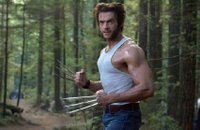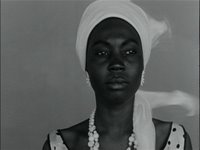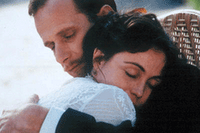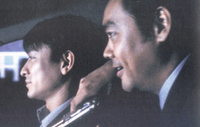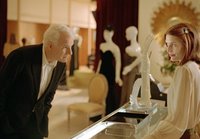
2005, US, directed by Anand Tucker
Rating: ***
It's unfortunate that Shopgirl is pigeonholed as a romantic comedy, since it's far more about mood and tone than ticking off the standard plot elements of that genre. Like the (Steve Martin) novella it is based on, Shopgirl is a slight affair, with the slenderest of plots, but Anand Tucker's careful direction and several appealing performances elevate the film; the limpid shots, carefully constructed colour schemes, musical background and acute sense of big-city loneliness are reminiscent at times of Wong Kar-Wai's In the Mood for Love, in a minor key. Claire Danes delivers her best big-screen performance as a Vermonter transplanted to Los Angeles; while she rejects the life her parents have chosen, she's living in a rut of her own on the West Coast, leaving her prone to the attentions of oddballs. Her suitors are played by Jason Schwartzman (who straddles the fine line between annoying and amusing with some skill) and Steve Martin (who seems determined to eradicate the last traces of the wild and crazy guy with his often unsympathetic sugar daddy portrayal). The air of quiet despair and the gorgeous cinematography create a haunting sense of the anonymity of Los Angeles; while Martin has always been a booster of that city, he's also acutely aware of its human failings.

